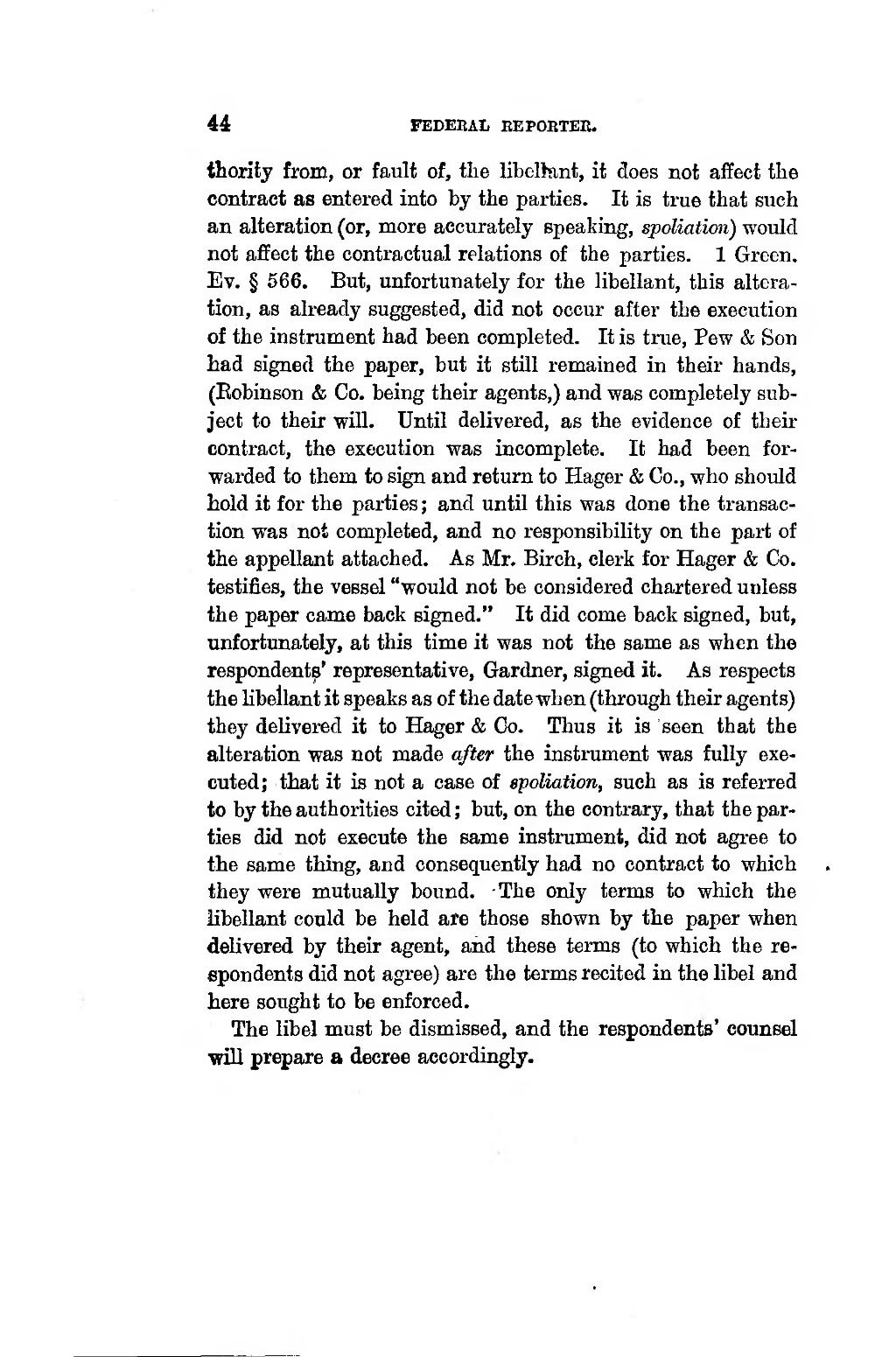44 FEDEEAIi EEPOETER. �thority from, or fault of, the libelknt, it does not affect the contract as entered into by the parties. It is true that such an alteration (or, more accurately speaking, spoliation) would not affect the contractual relations of the parties. 1 Green. Ev. § 566. But, unfortunately for the libellant, this altera- tion, as already suggested, did not occur after the execution of the instrument had been completed. Itis true, Pew & Son had signed the paper, but it still remained in their hands, (Eobinson & Co. being their agents,) and was completely sub- ject to their wiU. Until delivered, as the evidence of their contract, the execution was incomplete. It had been for- •warded to them to sign and return to Hager & Co., who should hold it for the parties ; and until this was done the transac- tion was not completed, and no responsibility on the part of the appellant attached. As Mr. Birch, clerk for Hager & Co. testifies, the vessel "would not be considered chartered unless the paper came back signed." It did come back signed, but, unfortunately, at this time it was not the same as when the respondents' representative, Gardner, signed it. As respects the libellant it speaks as of the date when (through their agents) they delivered it to Hager & Co. Thus it is seen that the alteration was not made after the instrument was fully exe- cuted; that it is not a case of spoliation, such as is referred to by the authorities cited ; but, on the contrary, that the par- ties did not execute the same instrument, did not agree to the same thing, and consequently had no contract to which they were mutually bound. • The only terms to whieh the libellant could be held are those shown by the paper when delivered by their agent, and these terms (to which the re- spondents did not agree) are the terms recited in the libel and here sought to be enforced. �The libel must be dismissed, and the respondents' counsel wiU prepare a decree accordingly. ����
